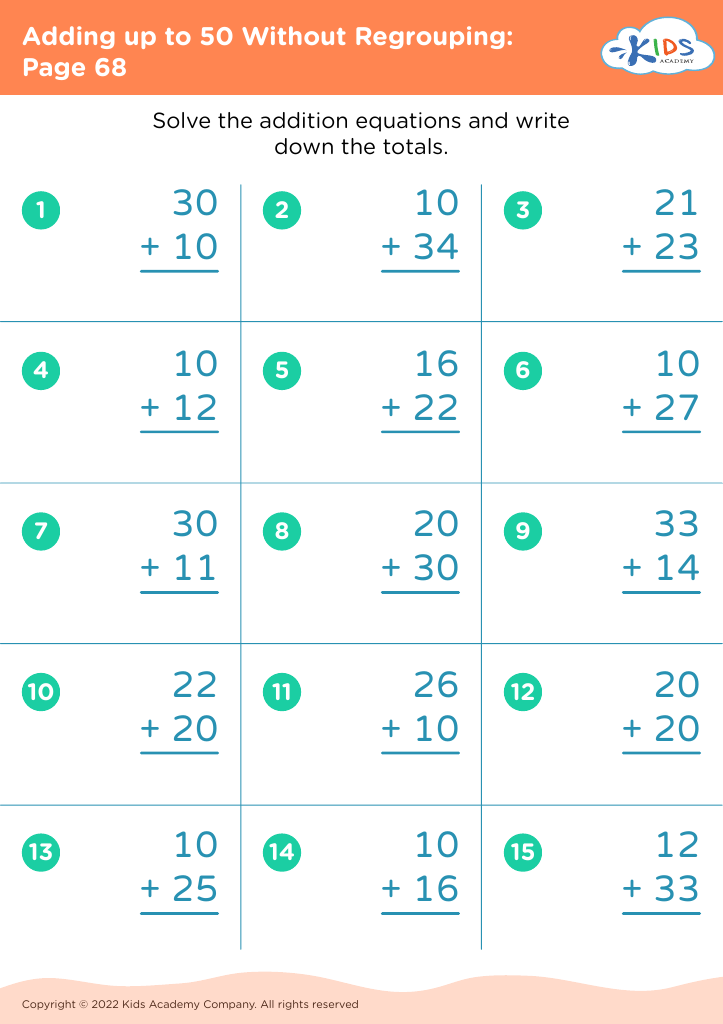Developing observation skills Math Worksheets for Ages 4-7
6 filtered results
-
From - To
Enhance your child's learning experience with our engaging "Developing Observation Skills Math Worksheets" designed specifically for ages 4-7. These interactive worksheets foster critical thinking and problem-solving through fun activities that encourage kids to observe, compare, and analyze various shapes, patterns, and numbers. With a variety of vibrant visuals and challenges, children will develop their math skills while sharpening their observation abilities. Ideal for homeschooling, classroom settings, or extra practice, these worksheets make learning enjoyable and effective. Support your child's growth in foundational math concepts and observation techniques today with our thoughtfully crafted resources! Explore now and watch their confidence soar!
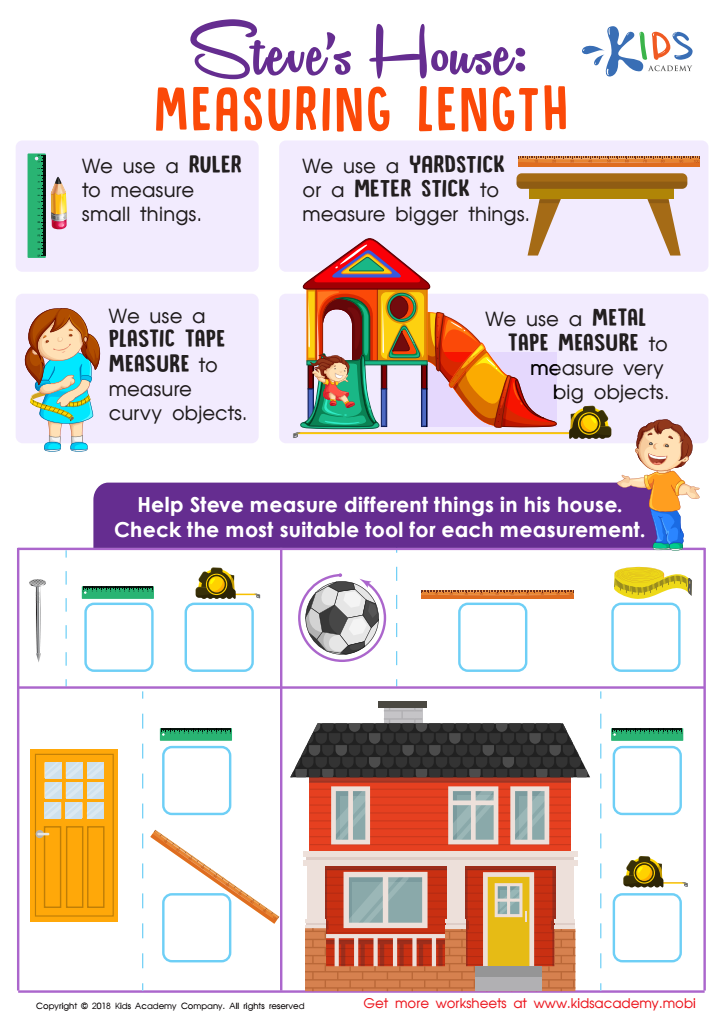

Steve's House: Measuring Length Worksheet
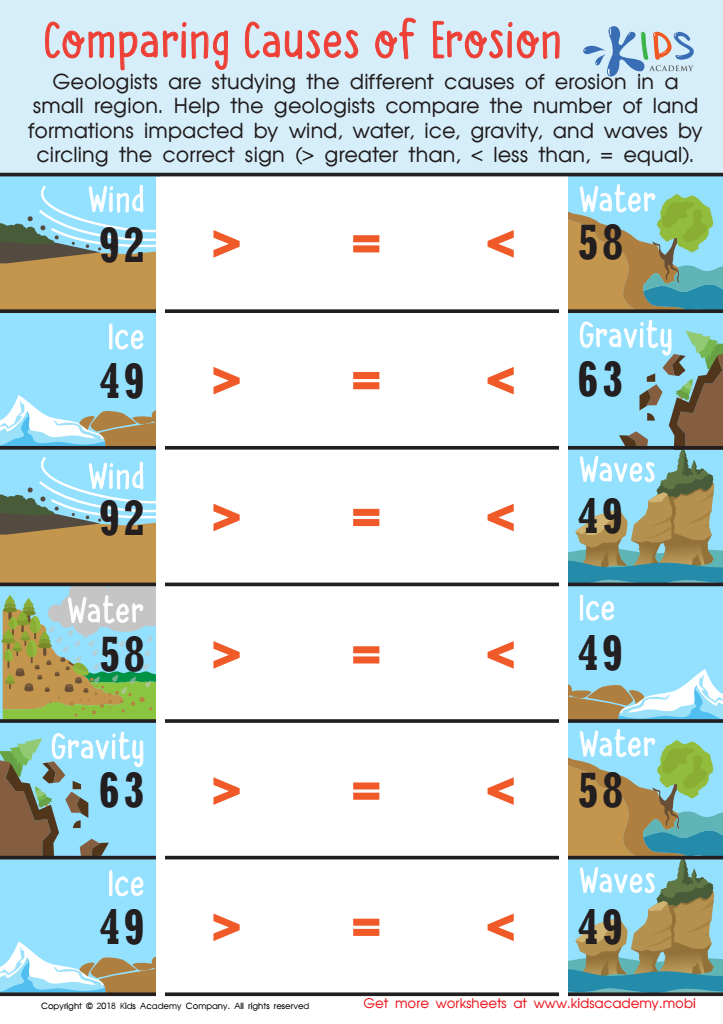

Comparing Causes of Erosion Worksheet
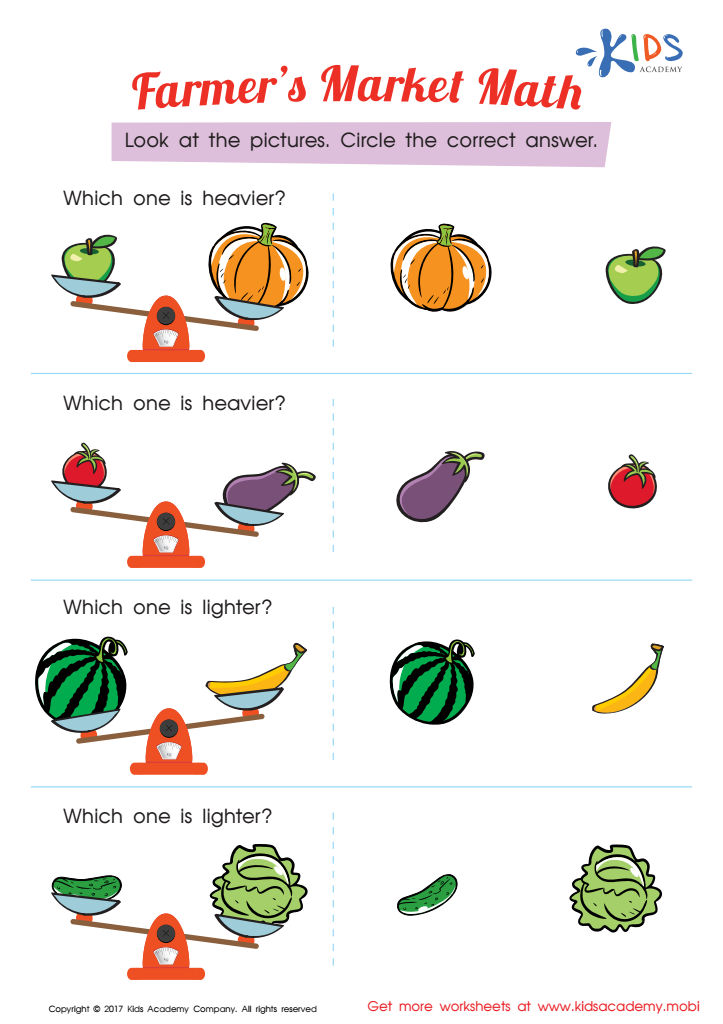

Which One Is Heavier Worksheet
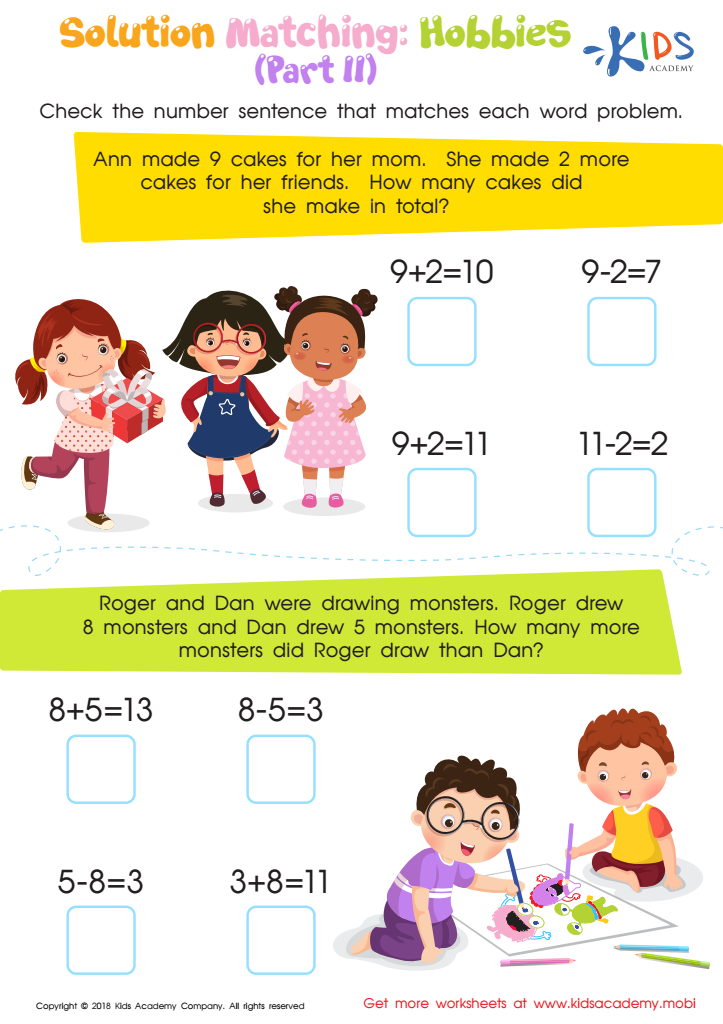

Solution Matching: Hobbies. Part 2 Worksheet
Developing observation skills in math for children aged 4-7 is crucial for several reasons. At this foundational stage, kids learn to understand and engage with the world around them. Observation skills help them notice patterns, shapes, and relationships, essential components of mathematical thinking. For instance, when children observe the properties of objects—such as size, color, and quantity—they start developing a sense of measurement and comparison basic to math proficiency.
Furthermore, strong observation skills lay the groundwork for critical thinking and problem-solving abilities. When children can effectively notice and interpret their surroundings, they are better equipped to tackle mathematical concepts like addition, subtraction, and even spatial awareness. Additionally, observational activities—such as counting objects during play or finding shapes in nature—make learning more interactive and enjoyable, which is fundamental at this age.
Parents and teachers must integrate observation-based learning into everyday activities, as this approach fosters engagement and curiosity. By promoting these skills, caregivers can nurture confident, capable learners who see math as a tangible part of life, rather than an abstract subject. In essence, fostering observation skills not only enhances children's mathematical success but also enables holistic cognitive development and an appreciation for learning.
 Assign to My Students
Assign to My Students



